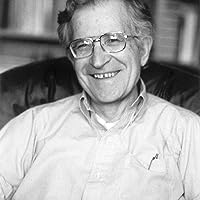Societies Quotes
Quotes tagged as "societies"
Showing 1-29 of 29

“There are people who are generic. They make generic responses and they expect generic answers. They live inside a box and they think people who don't fit into their box are weird. But I'll tell you what, generic people are the weird people. They are like genetically-manipulated plants growing inside a laboratory, like indistinguishable faces, like droids. Like ignorance.”
―
―

“What happened?
It took Gibbon six volumes to describe the decline and fall of the Roman Empire, so I shan’t embark on that. But thinking about this almost incredible episode does tell one something about the nature of civilisation.
It shows that however complex and solid it seems, it is actually quite fragile. It can be destroyed.
What are its enemies?
Well, first of all fear — fear of war, fear of invasion, fear of plague and famine, that make it simply not worthwhile constructing things, or planting trees or even planning next year’s crops. And fear of the supernatural, which means that you daren’t question anything or change anything.
The late antique world was full of meaningless rituals, mystery religions, that destroyed self-confidence. And then exhaustion, the feeling of hopelessness which can overtake people even with a high degree of material prosperity. There is a poem by the modern Greek poet, Cavafy, in which he imagines the people of an antique town like Alexandria waiting every day for the barbarians to come and sack the city. Finally the barbarians move off somewhere else and the city is saved; but the people are disappointed — it would have been better than nothing.
Of course, civilisation requires a modicum of material prosperity— What civilization needs: confidence in the society in which one lives, belief in its philosophy, belief in its laws, and confidence in one’s own mental powers. The way in which the stones of the Pont du Gard are laid is not only a triumph of technical skill, but shows a vigorous belief in law and discipline.
Vigour, energy, vitality: all the civilisations—or civilising epochs—have had a weight of energy behind them.
People sometimes think that civilisation consists in fine sensibilities and good conversations and all that. These can be among the agreeable results of civilisation, but they are not what make a civilisation, and a society can have these amenities and yet be dead and rigid.”
― Civilisation
It took Gibbon six volumes to describe the decline and fall of the Roman Empire, so I shan’t embark on that. But thinking about this almost incredible episode does tell one something about the nature of civilisation.
It shows that however complex and solid it seems, it is actually quite fragile. It can be destroyed.
What are its enemies?
Well, first of all fear — fear of war, fear of invasion, fear of plague and famine, that make it simply not worthwhile constructing things, or planting trees or even planning next year’s crops. And fear of the supernatural, which means that you daren’t question anything or change anything.
The late antique world was full of meaningless rituals, mystery religions, that destroyed self-confidence. And then exhaustion, the feeling of hopelessness which can overtake people even with a high degree of material prosperity. There is a poem by the modern Greek poet, Cavafy, in which he imagines the people of an antique town like Alexandria waiting every day for the barbarians to come and sack the city. Finally the barbarians move off somewhere else and the city is saved; but the people are disappointed — it would have been better than nothing.
Of course, civilisation requires a modicum of material prosperity— What civilization needs: confidence in the society in which one lives, belief in its philosophy, belief in its laws, and confidence in one’s own mental powers. The way in which the stones of the Pont du Gard are laid is not only a triumph of technical skill, but shows a vigorous belief in law and discipline.
Vigour, energy, vitality: all the civilisations—or civilising epochs—have had a weight of energy behind them.
People sometimes think that civilisation consists in fine sensibilities and good conversations and all that. These can be among the agreeable results of civilisation, but they are not what make a civilisation, and a society can have these amenities and yet be dead and rigid.”
― Civilisation

“We would not be ashamed of doing some of the things we do in private, if the number of sane human beings who do them in public were large enough.”
―
―

“It is an extremely unfortunate fact, that there are those who see the morale of respect as something that is beneficial to the other person on the receiving end, rather than something that is beneficial to the one who is capable of giving the respect! Because that's simply not how it works; the person who is capable of discerning respect and giving it to others, is the person who is better! There are people who believe that the virtue of respect and the ability to discern when to give respect and in which amounts to give it, belongs to the lower class! Oh I beg, I beg to differ! No. And no and no! If I am able to discern the amounts of respect to be given so that I may function as a beaming member of society, this virtue illuminates ME; this virtue does not illuminate those whom I give the respect to! Respect is known by the illuminated being!s”
―
―

“History is filled with the sound of silken slippers going downstairs and wooden shoes coming up,' Voltaire reportedly said. The observation refers to the argument that fortunes of nations or civilizations or societies rise and fall based on the character of their people, and this character is heavily influenced by the material and moral condition of their society. The idea was a staple of history writing from ancient Greece until it began to decline in popularity after the middle of the twentieth century.”
― The End is Always Near: Apocalyptic Moments, from the Bronze Age Collapse to Nuclear Near Misses
― The End is Always Near: Apocalyptic Moments, from the Bronze Age Collapse to Nuclear Near Misses

“For anyone inclined to caricature environmental history as 'environmental determinism,' the contrasting histories of the Dominican Republic and Haiti provide a useful antidote. Yes, environmental problems do constrain human societies, but the societies' responses also make a difference.”
― Collapse: How Societies Choose to Fail or Succeed
― Collapse: How Societies Choose to Fail or Succeed

“One of the difficulties in raising public concern over the very severe threats of global warming is that 40 percent of the US population does not see why it is a problem, since Christ is returning in a few decades. About the same percentage believe that the world was created a few thousand years ago. If science conflicts with the Bible, so much the worse for science. It would be hard to find an analogue in other societies.”
―
―

“Life was never meant to be difficult, we just make it that way so that it fits into societies and our indoctrinated concept of what things should be like.”
― The Solution
― The Solution

“Writers find it tempting to draw analogies between those trajectories of human societies and the trajectories of individual human lives – to talk of a society's birth, growth, peak, senescence, and death – and to assume that the long period of senescence that most of us traverse between our peak years and our deaths also applies to societies.”
― Collapse: How Societies Choose to Fail or Succeed
― Collapse: How Societies Choose to Fail or Succeed

“The top easily preventable health problems that I see in western societies are: 1. Eating chemically grown food. 2. Exposure to electronically generated harmonic energy from wind and solar power systems. 3. Exposure to harmonic energy from switched mode power supplies (SMPS) that come with modern electronic products. 4. Exposure to wireless radio frequency radiation (RF). 5. Light deficiency from an indoor lifestyle and Low-E double glazed windows. 6. Sound deficiency from heavily insulated homes that are devoid of natural sounds and are extremely quiet. 7. Pollen deficiency from living in man-made cities that are devoid of natural levels of pollen. 8. Natural radiation deficiency from living in homes that block natural levels of environmental radiation. 9. Open drain sickness that occurs when drain traps dry out and faulty vent valves that allow sewer gas to fill the home. 10. Drinking the wrong type of water.”
―
―

“If societies are going to elevate women to equality with men—and declare that people of any race or religion have the same rights as anyone else—then we have to have men and women and every racial and religious group together writing the code. … Diversity is the best way to defend equality. If people from diverse groups are not making those decisions, the burdens and benefits of society will be divided unequally and unfairly—with the people writing the rules ensuring themselves a greater share of the benefits and a lesser share of the burdens of any society. … That’s why we have to include everyone in the decisions that shape our cultures, because even the best of us are blinded by our own interests. If you care about equality, you have to embrace diversity—”
― The Moment of Lift: How Empowering Women Changes the World
― The Moment of Lift: How Empowering Women Changes the World

“Sigmund Freud founded virtually all of psychotherapy on introspection, so one would expect him to be able to explain his own feelings, no matter how primitive. In one area, however, he baffled himself: He could not explain group loyalty. He wrote that he was “irresistibly” bonded to Jews and Jewishness, by “many obscure and emotional forces, which were the more powerful the less they could be expressed in words, as well as by a clear consciousness of inner identity, a deep realization of sharing the same psychic structure.”
Freud was writing about powerful feelings of kinship to an entire people. These are the feelings of nationalists and fanatics—and of ordinary people—and do not lend themselves to precise analysis. By refusing to take seriously that which they cannot analyze, social scientists misunderstand how real societies work.”
― White Identity: Racial Consciousness in the 21st Century
Freud was writing about powerful feelings of kinship to an entire people. These are the feelings of nationalists and fanatics—and of ordinary people—and do not lend themselves to precise analysis. By refusing to take seriously that which they cannot analyze, social scientists misunderstand how real societies work.”
― White Identity: Racial Consciousness in the 21st Century

“Equality has a hard time in humanity. Race, sexuality, or creed has always divided societies.”
― A Time Of Renewal
― A Time Of Renewal
“Societies where there are worthy men and women of God, not necessarily preachers or religious men, but men that know the ways of God, they stand up against the collapse of equity in their land”
―
―

“In western societies many people become sick in their thirties, develop serious medical conditions in their forties and are disabled in their fifties.”
―
―

“What are the implications of ethnic identity for multi-racial and multi-ethnic societies? Tatu Vanhanen of the University of Tampere, Finland, has probably researched the effects of ethnic diversity more systematically than anyone else. In a massive, book-length study, he measured ethnic diversity and levels of conflict in 148 countries, and found correlations in the 0.5 to 0.9 range for the two variables, depending on how the variables were defined and measured. Homogeneous countries like Japan and Iceland show very low levels of conflict, while highly diverse countries like Lebanon and Sudan are wracked with strife.
Prof. Vanhanen found tension in all multi-ethnic societies: “Interest conflicts between ethnic groups are inevitable because ethnic groups are genetic kinship groups and because the struggle for existence concerns the survival of our own genes through our own and our relatives’ descendants.” Prof. Vanhanen also found that economic and political institutions make no difference; wealthy, democratic countries suffer from sectarian strife as much as poor, authoritarian ones: “Ethnic nepotism belongs to human nature and . . . it is independent from the level of socioeconomic development (modernization) and also from the degree of democratization.”
Others have argued that democracy is particularly vulnerable to ethnic tensions while authoritarian regimes like Saddam Hussein’s Iraq or Tito’s Yugoslavia can give the impression of holding it in check. One expert writing in Foreign Affairs explained that for democracy to work “the party or group that loses has to trust the new majority and believe that its basic interests will still be protected and that there is nothing to fear from a change in power.” He wrote that this was much less likely when opposing parties represent different races or ethnicities.
The United Nations found that from 1989 to 1992 there were 82 conflicts that had resulted in at least 1,000 deaths each. Of these, no fewer than 79, or 96 percent, were ethnic or religious conflicts that took place within the borders of recognized states. Only three were cross-border conflicts.
Wars between nations are usually ethnic conflicts as well. Internal ethnic conflict has very serious consequences. As J. Philippe Rushton has argued, “The politics of ethnic identity are increasingly replacing the politics of class as the major threat to the stability of nations.”
One must question the wisdom of then-president Bill Clinton’s explanation for the 1999 NATO bombing of Serbia: “[T]he principle we and our allies have been fighting for in the Balkans is the principle of multi-ethnic, tolerant, inclusive democracy. We have been fighting against the idea that statehood must be based entirely on ethnicity.”
That same year, the American supreme commander of NATO, Wesley Clark, was even more direct: “There is no place in modern Europe for ethnically pure states. That’s a 19th century idea and we are trying to transition into the 21st century, and we are going to do it with multi-ethnic states.”
― White Identity: Racial Consciousness in the 21st Century
Prof. Vanhanen found tension in all multi-ethnic societies: “Interest conflicts between ethnic groups are inevitable because ethnic groups are genetic kinship groups and because the struggle for existence concerns the survival of our own genes through our own and our relatives’ descendants.” Prof. Vanhanen also found that economic and political institutions make no difference; wealthy, democratic countries suffer from sectarian strife as much as poor, authoritarian ones: “Ethnic nepotism belongs to human nature and . . . it is independent from the level of socioeconomic development (modernization) and also from the degree of democratization.”
Others have argued that democracy is particularly vulnerable to ethnic tensions while authoritarian regimes like Saddam Hussein’s Iraq or Tito’s Yugoslavia can give the impression of holding it in check. One expert writing in Foreign Affairs explained that for democracy to work “the party or group that loses has to trust the new majority and believe that its basic interests will still be protected and that there is nothing to fear from a change in power.” He wrote that this was much less likely when opposing parties represent different races or ethnicities.
The United Nations found that from 1989 to 1992 there were 82 conflicts that had resulted in at least 1,000 deaths each. Of these, no fewer than 79, or 96 percent, were ethnic or religious conflicts that took place within the borders of recognized states. Only three were cross-border conflicts.
Wars between nations are usually ethnic conflicts as well. Internal ethnic conflict has very serious consequences. As J. Philippe Rushton has argued, “The politics of ethnic identity are increasingly replacing the politics of class as the major threat to the stability of nations.”
One must question the wisdom of then-president Bill Clinton’s explanation for the 1999 NATO bombing of Serbia: “[T]he principle we and our allies have been fighting for in the Balkans is the principle of multi-ethnic, tolerant, inclusive democracy. We have been fighting against the idea that statehood must be based entirely on ethnicity.”
That same year, the American supreme commander of NATO, Wesley Clark, was even more direct: “There is no place in modern Europe for ethnically pure states. That’s a 19th century idea and we are trying to transition into the 21st century, and we are going to do it with multi-ethnic states.”
― White Identity: Racial Consciousness in the 21st Century
“For a nation to be truly transformed, there must be movements, civil societies, NGOs that are spread all across the land to educate people on the issues of Personal Responsibility. If a nation or rather active citizens of a nation could successfully launch such campaigns and a good percentage of the populace begin to live by the principles of Personal Responsibility, which is “don’t blame others”, think of what you can do to fix it. Such a nation would cross the huddle of civilization in a record time.”
―
―

“في مجتمعات الشرق الأوسط، الحكم على الأمر يميز على أسس كثيرة، منها الجنس والعمر والحالة الزوجية والدين، والأولوية معطاة دائماً بكل إجحاف وظلم للرجل البالغ المتزوج المسلم.”
― صراع الأقنعة
― صراع الأقنعة
“I value individuals and societies. I care about those who are not born yet. That is the reason for my joys and blues.”
―
―

“She felt awkward and stiff at most gatherings, although Ross's mother assured her that she would feel more comfortable as time passed. She found it somewhat easier to mix with "second-tier" sorts, such as Sir Grant and his wife, Victoria, and the crowd of professionals who were not nearly as rarefied as those in the first circles. These people were far less pretentious, and far more aware of ordinary matters like the cost of bread and the concerns of the poor.”
― Lady Sophia's Lover
― Lady Sophia's Lover
“The world is carried in the wild heart of a tiger. When the last wild tiger is extinguished, civilization will turn on itself.”
―
―

“Why strain so hard to please someone else's society when you could create your own?”
― Creativity is Everything
― Creativity is Everything

“Primitive societies live by the Rule of Might, and the strong prevail. Advanced societies live by the Rule of Law, and the privileged prevail. Enlightened societies live by the Rule of Love, and everyone is lifted higher.”
―
―
All Quotes
|
My Quotes
|
Add A Quote
Browse By Tag
- Love Quotes 97k
- Life Quotes 75.5k
- Inspirational Quotes 72.5k
- Humor Quotes 43.5k
- Philosophy Quotes 29.5k
- Inspirational Quotes Quotes 27k
- God Quotes 26k
- Truth Quotes 23.5k
- Wisdom Quotes 23.5k
- Romance Quotes 23k
- Poetry Quotes 22k
- Death Quotes 20k
- Happiness Quotes 18.5k
- Life Lessons Quotes 18.5k
- Hope Quotes 18k
- Faith Quotes 18k
- Quotes Quotes 16.5k
- Inspiration Quotes 16.5k
- Spirituality Quotes 15k
- Religion Quotes 15k
- Motivational Quotes 15k
- Writing Quotes 14.5k
- Relationships Quotes 14.5k
- Life Quotes Quotes 14k
- Love Quotes Quotes 13.5k
- Success Quotes 13.5k
- Time Quotes 12.5k
- Motivation Quotes 12k
- Science Quotes 11.5k
- Knowledge Quotes 11k




